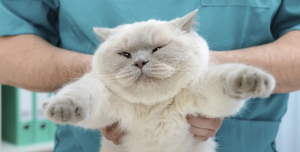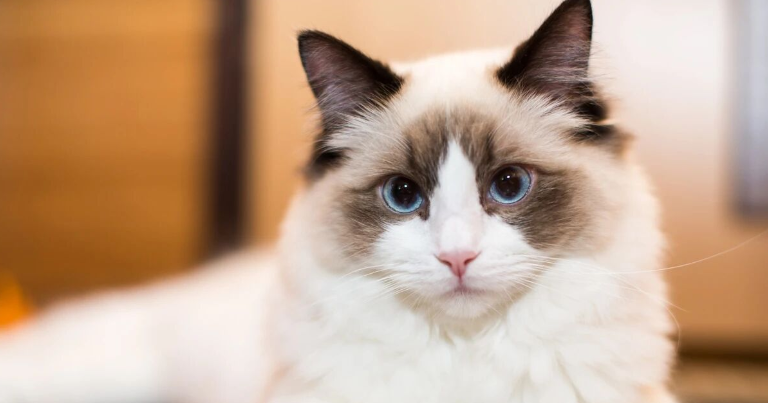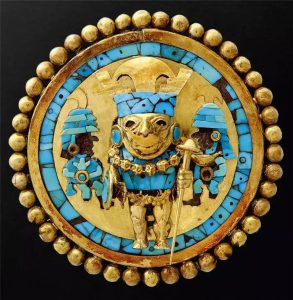Anyone who has a cat at home will notice that cats have all kinds of unique personalities. Some cats are quiet and aloof, spending the whole day in one spot and barely glancing at their owner even when they come home.Others are lively and clingy, full of energy every day, constantly circling around their human companions—sometimes making you wonder whether it’s the human obsessed with the cat, or the cat obsessed with the human.Then there are cats that switch between being shy and cautious and being playful and outgoing. At home, they may be lively and affectionate, but once outside, their personality can completely change—they become timid and careful.Living with an aloof, high-maintenance cat can be frustrating. Humans who try to show affection often hit a wall. Instead of improving the relationship, they can unintentionally push the cat into hiding around the house.When an extroverted human meets an introverted cat, both can get stressed out. Owners often feel completely baffled by their cat’s ever-changing personality. So the question is: do kittens really have their own distinct personalities?
-
Humans Have Personalities, Cats Have “Catsonalities”
Open up any social network, and you’ll see a group of extroverted humans hitting a karaoke bar. At first meeting, they act like long-lost siblings, taking turns singing and dancing in rapid succession. Meanwhile, introverted humans hiding in the corner muster the courage to grab the microphone, only to turn a lively pop song into something more like folk music.MBTI may not be a scientifically reliable personality test, but its popularity reflects a simple truth: humans have diverse and complex personalities. This naturally raises the question—do cats also have a wide variety of personality traits? Could there be “I-Cats” and “E-Cats”?The answer is yes—cats do have distinct personalities. A study from the School of Life Sciences at the University of Lincoln monitored and analyzed domestic cat behavior and concluded that cats possess individual personalities. Personality refers to the stable differences in behavior patterns among individuals, sometimes also called temperament. Certain feline behaviors—arching their back, pricking their ears, curling up—serve as signals expressing their emotions.Just as humans have the “Big Five” personality traits, cats have five major “catsonalities.” Researchers identified five reliable traits in cats: neuroticism, extroversion, dominance, impulsivity, and agreeableness.Neuroticism describes cats that are sensitive, anxious, shy, and fearful.Extroversion refers to lively, active cats.Dominance refers to cats who bully or assert control over other cats.Impulsivity describes unpredictable and sometimes rough behavior.Agreeableness refers to gentle, friendly cats.Among these, dominance, extroversion, and agreeableness are the three primary traits. For example, neurotic cats often hide in corners, leaving owners to wonder if they really have a cat at all. Agreeable cats tend to seek human company, curling up on your chest whenever possible—a “sweet burden” even for devoted cat owners. Dominant cats, on the other hand, may disdain other household pets and seem to constantly plot, thinking, “I swear I’ll be the boss.”
-
Personality Is in the DNA
Current research suggests that a cat’s personality is influenced by multiple factors, with age and breed being the most significant. Understanding these factors helps owners improve their pet’s living conditions and overall health.The same Lincoln University study found that older cats tend to be less active and more passive, scoring lower in extroversion. Cats of this type require extra attention to health concerns. If your cat lounges around all day, besides taking it to the vet to check for medical issues, you might also consider whether age is making mobility more difficult.Breed differences also indicate a genetic influence on personality. Cats of different breeds can exhibit very different traits. Common beliefs associate certain coat colors with personality—like “cow-patterned cats are neurotic” or “orange cats are steady”—but research shows no significant link between coat color and aggression. While coat color and breed have some correlation, not all breeds have clear coat-based personality patterns. Judging a cat’s temperament solely by fur color is therefore unreliable. Genetics mainly affects personality across different breeds.

-
Raising Your Dream Cat
Human personality is partly shaped by family upbringing, and domestic cats are no exception. Beyond age and breed, an owner’s behavior and personality can subtly influence a cat’s character.Those who post ultrasound images of their kittens online claiming “this kitten looks just like me” are not entirely wrong—cats can mirror their owners’ habits. Most felines prefer solitude; independence is natural for them. But as companion pets living in homes, cats’ lifestyles differ greatly from their wild counterparts, and human interaction shapes their personality.Lincoln University researchers included owner personality traits in their experiments. Using the BFI personality questionnaire, owners were evaluated along five dimensions—agreeableness, conscientiousness, extroversion, neuroticism, and openness—and these were compared to the cats’ five personality traits.They found:Cats of extroverted owners scored higher in sociability, showing a positive correlation.Cats scoring high in indifference or avoidance often had owners with lower agreeableness.Owners with higher neuroticism levels tended to have cats exhibiting more anxiety and aggressive behaviors.A cat’s health and behavior are closely tied to the owner’s personality, similar to parent-child dynamics in human families. Emotions, like viruses, can be contagious—even affecting kittens. For example, an ENTP-type owner often raises a talkative, social kitten. Socialization is a key part of a cat’s domestic life, requiring patience and knowledge from the owner.
-
Meowing When Going Out Is a Cry for Help
Even if owners carefully research breeds and provide a warm, tolerant home, cats may still yowl or attack humans under certain circumstances. Are there overlooked personality triggers?Environment plays a big role. Domestic cats of the same breed can behave very differently from stray cats, and a single cat’s behavior can change depending on the setting. Experienced cat owners know that cats are usually low-maintenance and self-entertaining. However, no house cat can stay in a familiar environment forever. Baths can be done at home, but veterinary visits require going out.A gentle, sweet cat at home can become a completely different animal at the vet—hissing at the doctor, swiping at the nurse, acting extremely stressed. Cats are naturally timid and highly sensitive to environmental changes, often showing stress behaviors, especially during trips or short-term hospitalization.Meowing loudly in these situations is a way cats seek attention—a translation of their stress is essentially: “Help me! Help me!”A survey experiment confirmed that environmental context significantly affects stress-related behavior.Researchers studied 222 domestic cats, monitoring ten types of stress behaviors during outings. Whether indoors or outdoors, once a cat leaves its familiar territory, stress behaviors and sudden personality changes are highly likely to occur.
An interesting finding is that the personality changes cats exhibit when going outside vary noticeably between breeds. Domestic “moggies” (local mixed-breed cats) show the largest behavioral reactions and shifts in stress indicators, British Shorthairs show moderate changes, and Ragdolls exhibit the smallest changes. This aligns with the results of another study as well.Perhaps this explains the common saying among cat enthusiasts: “Moggies are great, but purebred cats are even more charming!”





